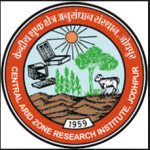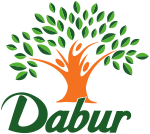CGIAR Research Program on Dryland Systems - DS
Leader Kumar Shalander, International Crops Research Institute for the Semi-Arid Tropics - ICRISAT
Team
members: 11
Partner
organizations: 8
Budget 2024
USD : 0
Activities/Products: 17
Description
In the Western Rajasthan action site which targets hot arid zone stretched over 19.3 million ha and supports 28 m humans and 28.6 m livestock, integrated research activities as part of CRP dryland systems are being implemented in eight action villages across three districts of Jaisalmer, Barmer and Jodhpur. The three districts that comprise the action site cover about 80,000 sq km or 8 m ha, and have a population of 6.9 million. These three districts rank lowest in all districts in India for both livelihoods and natural resources indices. The action site receives < 400 mm annual rainfall ranging from 170 mm in Dedha and Damodara villages in Jaisalmer to 380 mm in Govindpura and Mansagar villages in Jodhpur with 40 to 80% coefficient of variation. High solar radiation (500-600 cal/sq cm/day), turbulent strong summer winds (20-40 km/h) and high temperature (45-48°C) cause 1800 to 2200 mm/yr potential evapo-transpiration resulting in negative water balance for 9 to 11 months in a year. The farming systems in the region fall under pastoral and agro-pastoral characterized by low productivity and degradation. Frequent droughts (1 in 2.5 years) call for drought proofing, mitigation and relief strategies involving traditional drought-coping mechanisms, water harvesting and its utilization, and diversified agriculture. The agro-pastoral system is predominantly a rainfed crop–tree–livestock based production system with millets and legumes as the major crops providing food and fodder. Common pastures, rangelands and fallow lands are the main sources of fodder. The tree component together with livestock provides stability to the system. Off and non-farm income is one of the important sources of livelihood. Inter- and intra-region mobility of people is common due to resource scarcity, frequent droughts and fewer employment and income opportunities. ICRISAT with partners is implementing research for development targeting the whole farming and livelihood systems. Arable cropping alone is not a dependable proposition in these drylands. Animal wealth provides sustainable support to livelihood. Only one crop can be taken during a good rainfall year, and on average, one year of good harvest is normal during a cycle of five years, while two are expected to yield moderate crops and at least two failures are usual. The arid region offers limited scope for water harvesting and recycling, particularly on watershed basis. There is better scope for integrated land resources development on the basis of village clusters, index catchments and dune-interdune complex. Farm typology specific interventions for sustainable intensification of crop and livestock production, options for improved common property resources management, rain water management (Khadin system) and agro-horticulture and agro-forestry are part of CRP DS strategy to enhance farming systems resilience and rural livelihoods in western Rajasthan. We have also focus on integration of medicinal and aromatic plants and cash crops into the existing farming systems that are endemic to the region. Under CRP DS, we have initiated the idea of Innovation Platform for engaging partners for scaling-up the systems research to ensure impact on larger scale by providing holistic solutions. Our interventions are targeted at household as well as landscape level through improved technologies, indigenous practices, institutions and policies. Our research also target equitable participation and capacity development of women and youth. In partnership with all stakeholders, we aim to boost resilience and sustainable intensification of dryland systems and associated livelihoods in arid region of Rajasthan through a more sustainable and integrated mobilization of existing resources and by creating an enduring basis for structuring local initiatives.
Atlas
Activities/Products
Projects
| Acronym | Project Title | Year | Section | Leader | Center | Budget | Start Date | End Date | View |
|---|
Outcomes and Impact
| Code | Outcomes and Impact | Type | Indicators | View | |
|---|---|---|---|---|---|
| 8 | Local community participation in co-design and co-implement village-based approaches increased | development outcome | 3 | ||
| 4 | Seed system strenghtened and Crops seeds growers network functioning | development outcome | 1 | ||
| 1 | Female and male farmers/shakeholders use/adopt/implement methods/tools/approaches/technologies/NRMpractices/Varieties/framework/concepts | research outcome | 8 | ||
| 2 | Crop yields increased | development outcome | 3 | ||
| 3 | Female and male farmers/stakeholders (inc.youth) awareness, skills and knowledge increased | development outcome | 6 | ||
| 5 | Gender inclusiveness in decision making processes improved | research outcome | 1 | ||
| 6 | Water use efficiency and Water Productivity increased | development outcome | 2 | ||
| 7 | Fodder productivity increased | development outcome | 1 | ||
| 9 | Agroforestry practices adopted/incresed | research outcome | 3 | ||
| 10 | Food and Nutrition security status increased (e.g. availability, consumption) | research outcome | 0 | ||
| 11 | Mono-cropping decreased | development outcome | 0 | ||
| 12 | Tools, methods, processes and capacity of stakeholders to create/customize resilience options improved | research outcome | 1 | ||
| 13 | HHs income increased | development outcome | 1 | ||
| 14 | System approach is adopted by stakeholders | development outcome | 0 | ||
| 15 | Livestock enterprises strengthened | research outcome | 3 | ||
| 16 | Land degradation decreased | research outcome | 0 | ||
| 17 | Multi-stakeholder partnerships and interactive learning increased | development outcome | 1 | ||
| 18 | Female and male Farmers (inc.youth) maintain and increase indigenous crops/tree species | research outcome | 1 |
Personnel Involved
Partners
















